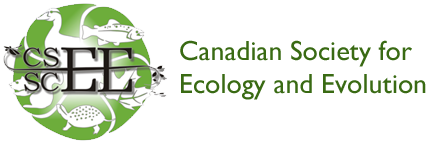Graduate Opportunity (MSc/PhD), University of Northern British Columbia: Understanding the Impacts and Uncertainty of a Future Climate for Caribou and Moose
GRADUATE POSITION
Woodland caribou and moose are experiencing unprecedented declines and threats across much of their North American range. Despite intensive and expensive efforts to monitor and conserve/manage these species, we know very little about the risks of future climate change. We are looking for an MSc or PhD student who is willing to work with experts to identify and rank the effects of climate change for boreal caribou, mountain caribou, and moose. We will develop a structured process for encoding the knowledge of professional experts that meets the basic requirements of rigour: formal definition of expert; clear explanation and understanding of objectives; repeatable method for encoding knowledge; and bias and error checking. The structure of the elicitation process will be guided by NatureServe’s approach to assessing climate change vulnerability: recognition of a species’ exposure, inherent sensitivity and adaptive capacity. The student will use that formalised knowledge to identify the components of climate change that are of greatest threat, least/most uncertain, and most likely to be mitigated. Those conclusions will add clarity to the debate about relative and overall risk of climate change facing two of Canada’s most iconic, culturally important, and conservation/management intensive species.
Expert elicitation is a relatively new and exciting methodological direction for ecologists that work on questions with few empirical data. If you are new to this area of research, then please have a look at several papers from the Northern Wildlife Ecology and Conservation Lab: Drescher et al. (2013; https://doi.org/10.1890/ES12-00415.1) and Bridger et al. (2016; https://doi.org/10.1890/15-0555).
The student will attend classes at the Prince George campus of the University of Northern British Columbia (UNBC), a small but dynamic research-intensive university (www.unbc.ca). The Prince George area offers abundant outdoor recreation activities. Please see our website for more information on the Natural Resources and Environmental Studies Graduate Program including degree requirements and expectations (https://www2.unbc.ca/nres-graduate-program).
Qualifications: This is a challenging, but rewarding project requiring a range of interests and aptitudes. Preferably, the successful applicant will have a degree in natural resource sciences with a GPA that will allow for competitive applications for scholarships. Quantitative or qualitative research skills are an asset. To be successful, you will want to work with and learn from ecologists that are experts in the distribution, threats and population dynamics of woodland caribou and moose.
Research funding ** ** is in place including a competitive stipend ($21,000/year). Prince George has a relatively low cost of living. Applications will be considered for January or September 2025 entries. There is a preference for a January start.
For further information please contact Dr. Chris Johnson: johnsoch@unbc.ca; 1-250-960-5357; https://www.researchgate.net/profile/Chris-Johnson-61; https://www.nwec-lab.ca/
If interested, please provide a CV, unofficial grades, and a letter of interest and qualifications for this position.
OUR COMMITMENT TO DIVERSITY AND EMPLOYMENT EQUITY
The University of Northern British Columbia is fully committed to creating and maintaining an equitable, diverse, and inclusive environment that is accessible to all. We are devoted to ensuring a welcoming, safe, and inclusive campus free from harassment, bullying, and discrimination. This commitment is woven into our motto and mission. In the Dakelh language, UNBC’s motto ‘En Cha Huná translates to “they also live” and means respect for all living things. Through the respect for all living things, we are able to grow and learn better together, each bringing our own unique individual differences and contributions to inspire leaders for tomorrow by influencing the world today.
Employment equity requires that we remove barriers and overcome both direct and indirect discrimination. In this way, the pool of candidates increases substantially. All qualified applicants will receive consideration without regard to race, colour, religion, sex, place of origin, age, physical disability, mental disability, sexual orientation, gender identity, and any other prohibited grounds of discrimination as outlined in the BC Human Rights Code.
The University of Northern British Columbia is committed to employment equity and encourages applications from the four designated groups (women, Indigenous peoples, persons with disabilities, and members of visible minorities) as well as the LGBTQ2+ communities and individuals with intersectional identities.
ABOUT THE COMMUNITY
Since its founding in 1990, the University of Northern British Columbia has emerged as one of Canada’s best small research-intensive universities, with a passion for teaching, discovery, people, and the North. UNBC’s excellence is derived from community-inspired research, hands-on learning, and alumni who are leading change around the world.
Since time immemorial, Indigenous peoples have walked gently on the diverse traditional territories where the University of Northern British Columbia community is grateful to live, work, learn, and play. We are committed to building and nurturing relationships with Indigenous peoples, we acknowledge their traditional lands, and we thank them for their hospitality. UNBC’s largest campus in Prince George is located on the traditional unceded territory of the Lheidli T’enneh, in the spectacular landscape near the geographic centre of beautiful British Columbia.
UNBC consistently ranks in the top three in its category in the annual Maclean’s university rankings. UNBC also recently placed among the top five per cent of higher education institutions worldwide by the Times Higher Education World University Rankings.
With a diverse student population, the University is friendly, inclusive, and supportive. Prince George is a city of ~80,000 people with impressive cultural, educational, and recreational amenities. For more information about living and working in Prince George, please refer to http://www.unbc.ca/experience and https://moveupprincegeorge.ca.
